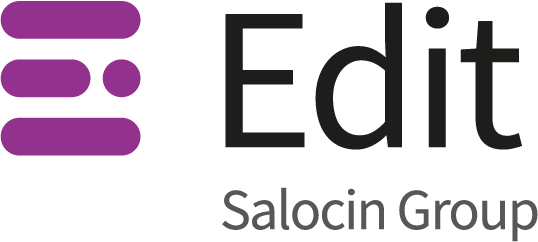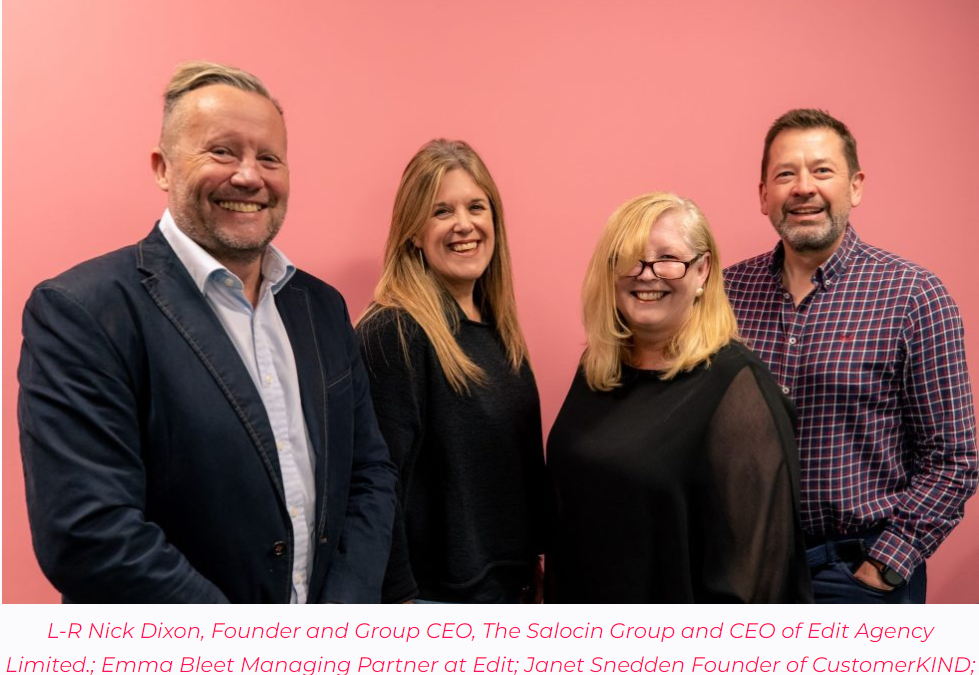“Why does Leeds have so many search agencies?”
It’s a question that we’re asked frequently, and the answer as in most cases, if you’re looking for a search agency, you’ll probably consider at least one from Leeds.
The volume of local agencies is one of the main reasons we decided to host our conference, SearchLeeds, here.
Most of the well-known search conferences take place in the south, despite the fact that we have over 3,000 people working in search in Leeds alone – and that figure doesn’t include client-side marketers. With SearchLeeds now in its second year and over 1,000 people registered for the 2017 event, it’s clear there’s demand for more search events in Leeds.
So, when we were looking at how Branded3 could contribute to the Leeds Digital Festival (a series of events focused on digital taking place 22-29 April), we invited some of our fellow Leeds agencies to join us for an afternoon of talks in a search-focused event, ‘Leeds Loves Search’.
The event took place on April 26 at Headrow House and saw speakers from local agencies deliver talks on topics across SEO. There were over 100 delegates in attendance, leaving standing room only for the latecomers.

Speakers from agencies including Home, Epiphany, Blueclaw and Branded3 covered a variety of topics, looking at link building, content, and the future of SEO.

Mat McCorry, Branded3 Search Strategist, summarised the talks, with links to each speaker’s slides:
Talk #1:
Carrie Balloch – Digital PR Strategist, Branded3
Title:
‘How to gain legitimate and Google-friendly links within difficult or “spammy” industries’
Carrie’s talk centred on the struggles that are plaguing the SEO industry and how it’s becoming difficult to build high-quality links, touching on the fact that a lot of regional and national newspapers are now nofollowing links as standard.
The talk was tailored towards those who are trying to build links in an industry that may not be considered as the most interesting or be thought of as “spammy” and how you can overcome the challenge. She used the controversial example of PornHub’s “Wank Band” asset, which acquired 780 links in a very tricky niche.
The top takeaways were: to stay relevant, not be promotional, and build relationships with journalists, as they want your stories and will link to you if it helps them to give an interesting, engaging story to their audience. If you position yourself as an expert in your industry, have interesting data that can add to a story, or can give an interesting insight into the conversations your customers are having, quality link building isn’t hopeless. So don’t give up!
Talk #2:
Neill Horie – Head of Artificial Intelligence Optimisation, Home
Title:
‘SEO & Artificial Intelligence Optimisation’
An interesting talk from Neill Horie started with the question “do you think you’re intelligent?”, to which no one was narcissistic enough to raise their hands. This was quickly followed by the seemingly random question “do you know the airspeed of an unladen European swallow?”. Neill told the audience that Amazon’s top selling product last year, the Echo, could answer quicker than them. (And for those who are curious, European sparrows have a velocity of eleven metres per second).
Did you know that 20% of US mobile Android queries are voice queries? This was just one of the many facts Neill shared with the audience. After a quick bit of maths, he estimated there are around 100 billion Android voice searches. This displayed the importance of understanding voice search, which is ultimately just AI.
The conversation then switched to the fact Google has been working on AI since the early days, and how essential it is for SEOs to understand and consider how to respond. Neill pointed out that, as SEOs, all we do is market towards AI, not people: we ensure pages have correct schema markets, Robots.txts and sitemaps to ensure crawlers can better understand and rank the pages. The valuable takeaway: “We must remember, AI is not someone else’s job. It’s our job. It’s our domain”.
Talk #3:
Martin Calvert – Marketing Director, Blueclaw
Title:
“Data Journalism + Content Marketing for Top Tier Link-building”
The talk started with a quote from the great Matt Cutts: “The objective is not to make your links appear natural. The objective is that your links are natural.” This is something people regularly forget. Legitimate links must be earned. It’s not easy. It’s much harder to get quality links, which is something SEOs need to contend with.
Martin also mentioned that people often forget about trying to find existing articles. You may be able to contribute data or useful information to old articles and make them relevant again – something journalists love and will reward you for.
Although a lot of his talk revolved around getting interesting data and research for journalists, there was also a warning that it won’t always work. If there’s no story or interesting hook as a foundation for the data, don’t do it – always think about what you are going to create.
An example of something that didn’t work to plan is “The 45th Potus Tweetgraph”, which was meant to be an asset that put “Trump” vs “Hilary” in terms of the Twitter landscape. But it ended with Trump absolutely dominating the landscape, as Hilary supporters spent more time negatively tweeting about Trump, so the asset didn’t produce any useful data.
Not to be disheartened, he gave an example of how data can work if the foundational idea is good with the “Multicultural Championship” asset. This was an asset about how the “Euros” should really be the “Worlds”, showing all the players in the competition who had migrated from countries outside of Europe. It got a ton of pickup, including coverage from some reputable national newspapers.
The main takeaway point was you have to earn your place: “If your content makes claims that are easily shot down or has stats that are out of date, your coverage will be minimal.”
Talk #4:
Malcolm Slade – Head of Technical SEO, Epiphany
Title:
‘Brand: The Only Future Ranking Factor’
Introduced to the main stage as a “legend” by the one and only Stephen Kenwright, the audience were expecting big things, and Malcolm didn’t disappoint. He started by talking about how SEO got noticeably harder in 2016 and how useful content, quality links and high authority won’t just get you to page 1: there’s something else in the mix.
He then went on to mention all the current updates over the last few months, highlighting that they have all been geared towards quality and user experience, which translates to “good technical housekeeping.”
The talk centred around the statement: “What if Google applies more thought to page 1 results?” With that in mind, tweaking meta and H1s isn’t enough to get you to page one. Treat Google as a user, it’s becoming a lot more human. What would a human expect and want to see?
Malcolm also referred to a talk he gave a few years back in which he mentioned how important brand was to search results. If Google applies more thought to page one, surely it knows which brands people want to see. He argued brands are becoming far more dominant, meaning it’s going to become harder to rank for significant search terms without having the brand authority to do so. So, for example, if you’re a brand running TV advertising, don’t just make people visit your website directly – make them search you through Google so there is more weight put in your brand’s influence.
What if you can’t afford to build your brand? Well, unfortunately, according to Malcolm, you’re just going to have to settle for longtail product search for now.
Thank you to all our speakers and delegates for taking the afternoon to come along. If you’re looking for more events of this kind, then you should check out SearchLeeds!





